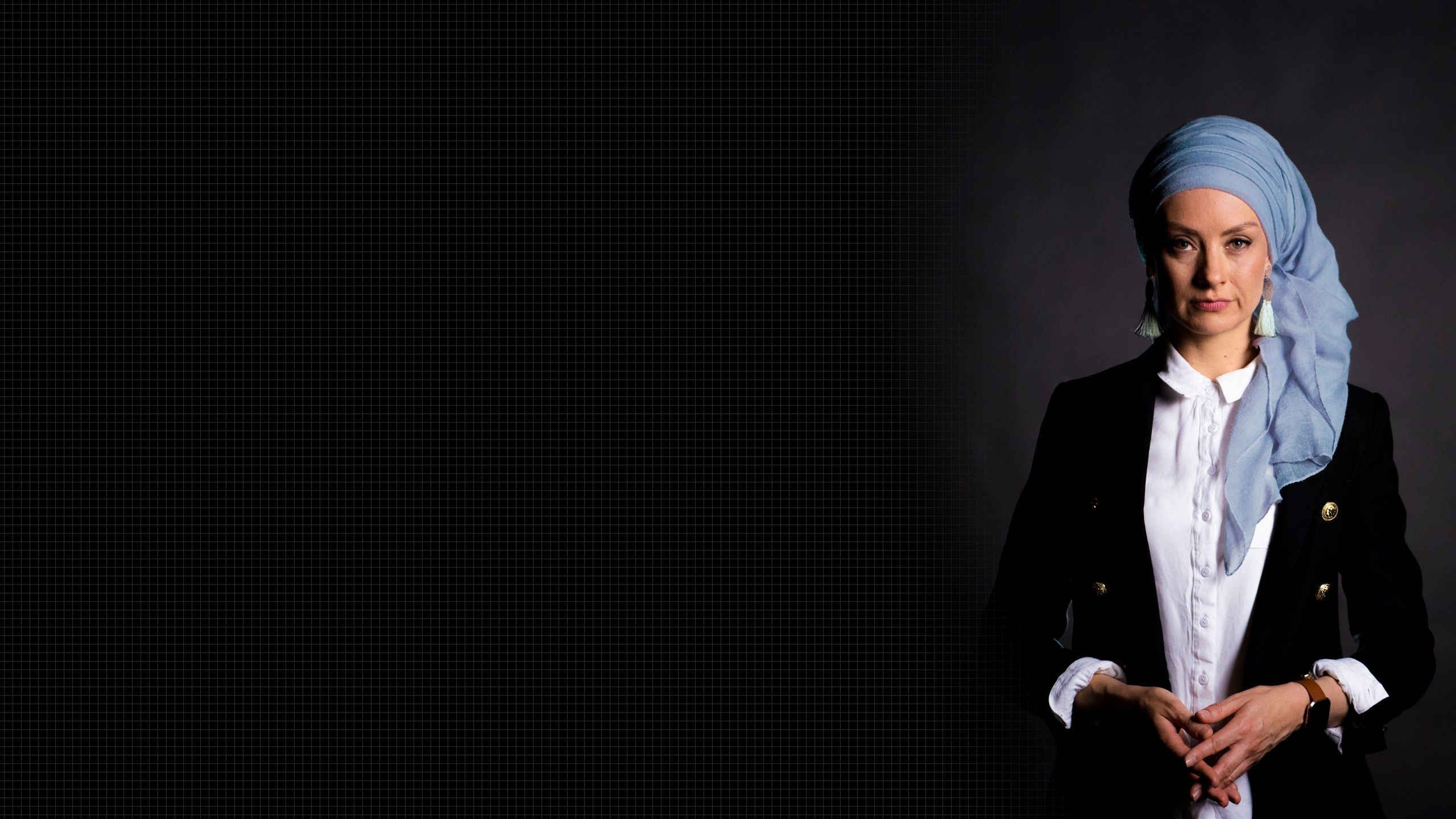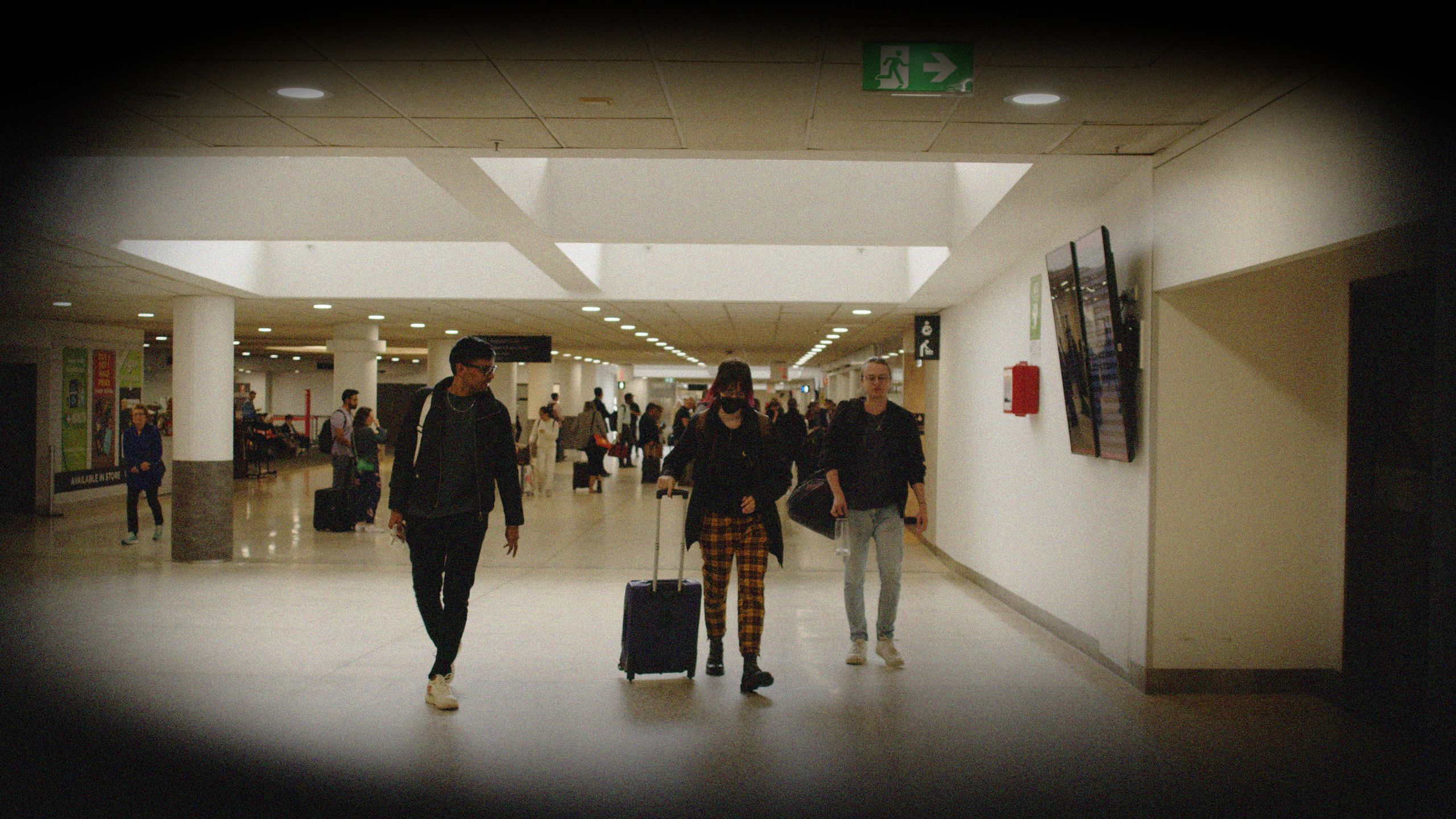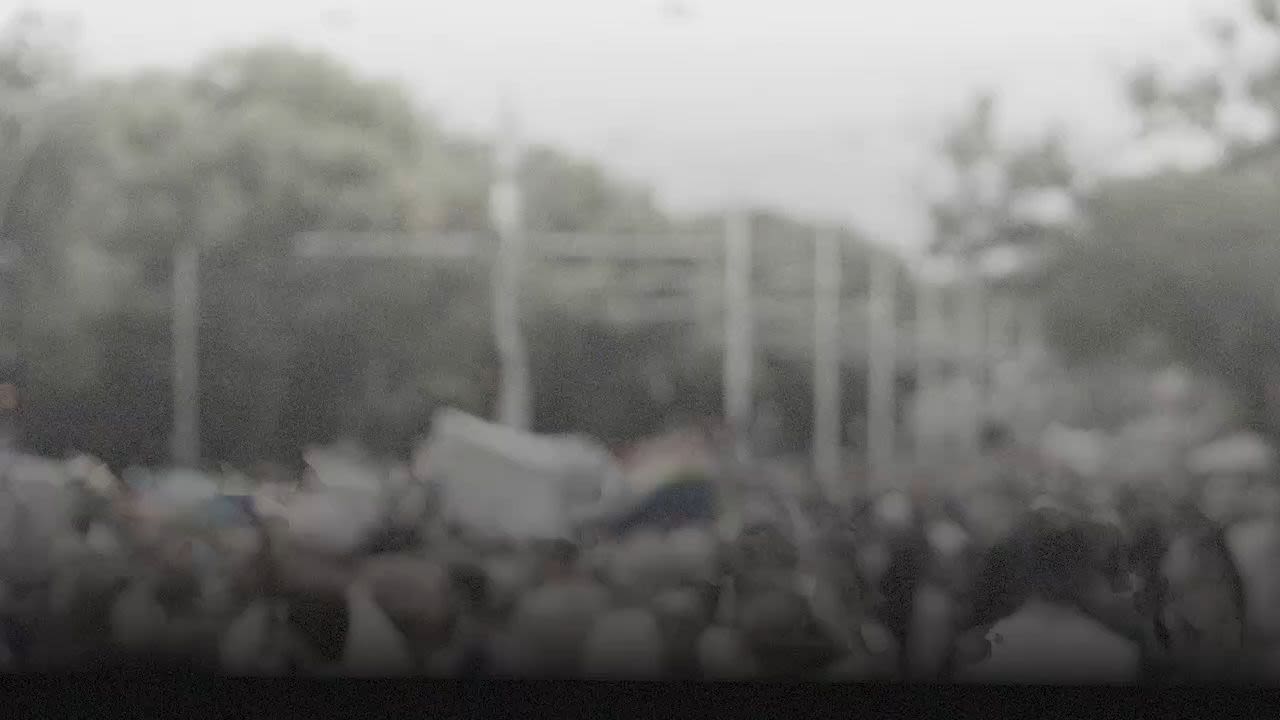WHAT HAPPENS NEXT?
A Pride Open Road is a special mid-season documentary of the award-winning podcast What Happens Next? hosted by Dr Susan Carland.
In this interactive, immersive piece, we meet Thanura, Jesse and Nat, who share their lived experiences and journey to Sydney to attend the Human Rights Conference at World Pride 2023. We delve into the issues faced by the LGBTIQA+ community, and meet some of the inspiring change-makers.

A PRIDE OPEN ROAD
A Pride Open Road follows three Monash University students on their journey to the 2023 Human Rights Conference at World Pride in Sydney, Australia.
Listen to the podcast episodes below, or scroll to explore this interactive, immersive story.
Play episode 1 of A Pride Open Road:
Play episode 2 of A Pride Open Road:
Scroll or swipe to continue

MEET THE STUDENTS
Three Monash University students were chosen as delegates to attend the 2023 World Pride Human Rights Conference in Sydney.
Thanura, Nat and Jesse will travel to Sydney to hear from experts including LGBTQIA+ campaigners and activists, First Nations leaders and elders, policy and lawmakers, elected officials, researchers and academics as they discuss LGBTIQA+ human rights.
Scroll or swipe to continue

Thanura
(He/They)
Until he was 10, Thanura’s family divided their time between Sri Lanka and Australia, and it wasn’t until he moved out of home at 17 that he came out as gay to his parents.
“Luckily, my parents were quite positive,” Thanura says.
Despite this support, Thanura says it’s not always easy to be himself.
“Even when I go into spaces in Melbourne that I think might not be the safest for me, I have to act a certain way, to consciously think, ‘Yeah, I’ll get home safe, I’ll be fine’,” he says.
Jesse
(He/Him)
Jesse grew up in a small town and attended a single-sex boys’ school.
“A lot of the things I heard about queer people growing up was that it was about bad parenting or abuse situations,” he says.
“When you grow up in a homophobic environment, you kind of normalise it,” Jesse says.
In light of his own challenges, Jesse says it’s important to recognise that others in the LGBTIQA+ community face greater adversity.
“I have a lot of friends who come from international backgrounds, from countries where it’s illegal to be queer,” Jesse says.
“They’ve had to hide things, not just to avoid discrimination, [but to] be able to live safely in that environment,” he says.
Nat
(They/He)
Nat identifies as trans and non-binary or queer.
“Defining identity, for me, is something that is a lot of effort, so it’s just easier to slap ‘queer’ on it and call it a day,” he says.
For Nat, the upcoming trip to Sydney World Pride is a chance to hear the stories of those in the LGBTIQA+ community.
“My experience isn’t monolithic. It isn’t the only experience out there, so it’s important to listen to others, and to learn from those and get those different perspectives,” Nat says.
INTERNATIONAL
HUMAN RIGHTS
Thanura, Nat and Jesse are looking forward to hearing from Professor Paula Gerber, who’s speaking at the Sydney World Pride Human Rights Conference about the issues facing the LGBTIQA+ community.
Professor Gerber is an internationally-renowned legal scholar and human rights advocate.
“I’m going to be talking about how we can use international mechanisms, like the UN, the Human Rights Council and the treaty committees to advance the protection of rights of LGBTIQA+ people in Australia,” Professor Gerber says.
“There are still countries in the world where it’s a crime to be gay,” she says.
Explore a map showing countries where same-sex conduct has been criminalised
Currently, 67 countries have laws that criminalise same-sex sexual conduct between consenting adults. Scroll or swipe for more information.
Many of these countries inherited anti-LGBTIQA+ laws from their former British colonial rulers, including laws that criminalise same-sex sexual activity. The majority of these jurisdictions explicitly criminalise sex between men via ‘sodomy’, ‘buggery’ and ‘unnatural offences’ laws.
These laws were often imposed by British authorities during the colonial era, when British values and morality were imposed on the colonies. Although many of these countries have gained independence and changed their laws, some have retained the colonial-era laws that criminalise same-sex relationships and retain anti-LGBTIQA+ cultural and social norms.
Currently, 67 countries have laws that criminalise same-sex sexual conduct between consenting adults. Scroll or swipe for more information.
Many of these countries inherited anti-LGBTIQA+ laws from their former British colonial rulers, including laws that criminalise same-sex sexual activity. The majority of these jurisdictions explicitly criminalise sex between men via ‘sodomy’, ‘buggery’ and ‘unnatural offences’ laws.
These laws were often imposed by British authorities during the colonial era, when British values and morality were imposed on the colonies. Although many of these countries have gained independence and changed their laws, some have retained the colonial-era laws that criminalise same-sex relationships and retain anti-LGBTIQA+ cultural and social norms.
“There are a lot of countries around the world that don’t have anti-discrimination laws, so LGBTIQA+ people can be discriminated against in housing, in accessing education, in healthcare, in provision of welfare and services from the government,” Professor Gerber says.
Professor Gerber says Australia has its own set of challenges, particularly when it comes to the treatment of transgender and gender-diverse people.
“In the marriage equality debate, they were thrown under the bus a bit,” she says.
“There’s a lot of work we’ve got to do, so that they enjoy the same rights as the LGBIQ part of the rainbow acronym,” she adds.
Nat says their experience coming out as a trans person was initially difficult to deal with.
“When I first came out as trans to my parents, my mum didn’t talk to me for about a year,” Nat says.
“They were convinced that my life was over,” they say.
“When the people who are supposed to love you the most in the world, unconditionally, don’t, your first instinct isn't to go, ‘They’re wrong’.”
Nat’s relationship with his parents took time to heal.
“Now, my parents, they know a lot more, they’re more educated. They are immensely supportive [and the] best parents I could ask for,” Nat says.
Explore a map of countries where gender expression has been criminalised

The legal systems of some countries include laws for simply expressing ones own gender identity.
The countries highlighted on the map, all have established laws that punish trans people, due solely to their gender identity.
These countries use ‘cross-dressing’, ‘impersonation’ and ‘disguise’ laws to criminalise gender identity. In many more countries transgender people are targeted by a range of laws that criminalise same-sex activity and vagrancy, hooliganism and public order offences.
The legal systems of some countries include laws for simply expressing ones own gender identity.
The countries highlighted on the map, all have established laws that punish trans people, due solely to their gender identity.
These countries use ‘cross-dressing’, ‘impersonation’ and ‘disguise’ laws to criminalise gender identity. In many more countries transgender people are targeted by a range of laws that criminalise same-sex activity and vagrancy, hooliganism and public order offences.
CHAMPIONING THE CAUSE
During orientation week, Thanura and Jesse had the opportunity to sit down and chat with former Olympic gold medalist and Sydney World Pride Rainbow Rainbow Champion Ian Thorpe about his work advocating for social justice.
Continue to watch the students chat with Ian Thorpe

“The other thing that is still around – and this is going to be a very hard number to change – one in six people think gay people should be locked up or killed.”
Explore a map of countries where the death penalty applies for acts of homosexuality

Several countries impose the death penalty for those found to be engaging in homosexual activity.
The countries hightlighted on the map in red, all have laws that include the death penalty as punishment for homosexuality.
Six of these implement the death penalty – Iran, Northern Nigeria, Saudi Arabia, Somalia and Yemen – and the death penalty is a legal possibility in Afghanistan, Brunei, Mauritania, Pakistan, Qatar and UAE.
Several countries impose the death penalty for those found to be engaging in homosexual activity.
The countries hightlighted on the map in red, all have laws that include the death penalty as punishment for homosexuality.
Six of these implement the death penalty – Iran, Northern Nigeria, Saudi Arabia, Somalia and Yemen – and the death penalty is a legal possibility in Afghanistan, Brunei, Mauritania, Pakistan, Qatar and UAE.
1978: AUSTRALIA'S
'STONEWALL' MOMENT
24 June, 1978, marked the first Sydney Gay and Lesbian Mardi Gras. The event was planned to coincide with the anniversary of New York’s Stonewall riots, which saw violent clashes between gay rights activists and New York police.
In some ways, events in Sydney would mirror those of New York’s Greenwich Village almost a decade earlier.
“The 78ers – that was our Stonewall for our time,” Professor Gerber says.
“LGBTIQA+ people decided that they’d had enough of being treated as criminals by the police and by politicians,” she says.
“So they came out of the pubs and bars and protested on the streets.”
Many of the protestors were arrested, and for many, the events had a lifelong impact.
“The media publicised their names. Families were ruined. People lost their jobs,” Professor Gerber says.
“But it galvanised people. It started a movement.”
THE WAY FORWARD
After a stirring Welcome to Country and opening remarks from dignitaries, Sydney World Pride 2023 is underway.
The federal Minister for Foreign Affairs, Penny Wong, delivers a keynote speech on Australia’s role in promoting LGBTIQA+ human rights.
“In too many countries, LGBTIQA+ people experience targeted persecution and discrimination,” Senator Wong says.

Professor Gerber says having political leaders attend the conference is an important step.
“I think having them present at these dialogues means that they go back home with a new sense of what might be possible.”
It’s day three of the conference, and Thanura is about to attend a panel discussion on international human rights law.
The panel includes Professor Gerber, former High Court Justice Michael Kirby AC CMG, and Rosanna Flamer-Caldera, Executive Director of Equal Ground, a non-profit organisation that advocates for greater social rights for LGBTIQA+ communities in Sri Lanka.
Flamer-Caldera speaks about her successful lobbying of the UN, and its acknowledgement that Sri Lankan laws regarding same-sex relationships are a breach of human rights.
“Sri Lanka is one of the … countries that criminalises consenting adults, same-sex relationships between women,” Flamer-Caldera says.
For Thanura, hearing Flamer-Caldera is a powerful moment.
“It was such a rewarding experience to be able to see Rosanna represented on the world stage,” Thanura says.
“As a Sri Lankan queer person myself, I’ve never been able to see myself represented; to finally see that was just so joyful.”
After the panel discussion, Thanura has the chance to talk to Professor Gerber, and asks her what individuals can do if they want to make changes to LGBTIQA+ laws in Australia.
“An individual can really make a difference, and in fact it’s often the only way change happens,” Professor Gerber says.
“We’re the only Western country in the world that does not have a human rights act,” she says.
So, I’d just encourage you - if you’ve got some time and some enthusiasm for changing the rights and protections for LGBTIQA+ people, then get involved,” she adds.
Watch our chat with Professor Paula Gerber
CREDITS
For full transcripts of the two podcast episodes, click here.
Our sincere thanks to:
- Thanura
- Nat
- Jesse
- Ian Thorpe
- Professor Paula Gerber
Images of 1978 Gay Rights protests in Sydney courtesy of the State Library of NSW
Data Source: humandignitytrust.org
We acknowledge and pay respects to the Elders and Traditional Owners of the land on which our Australian campuses stand. Information for Indigenous Australians
Accessibility | Disclaimer & copyright | Terms & conditions | Data privacy & cyber security


